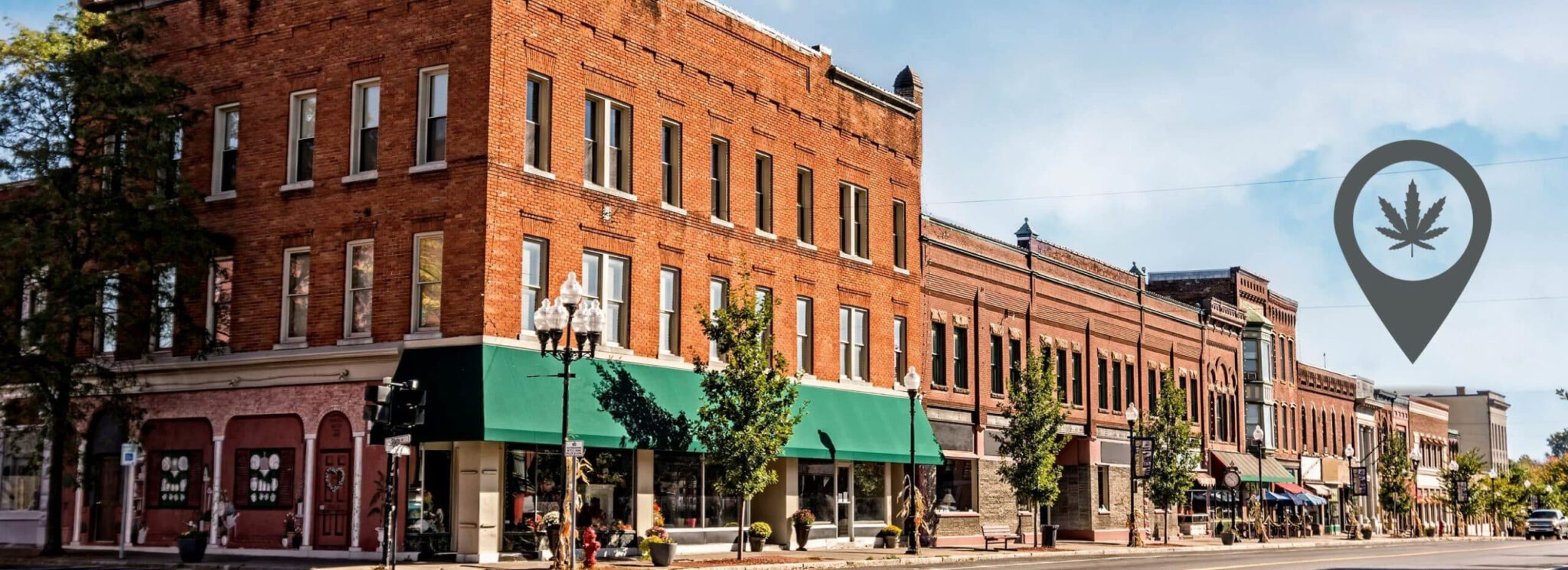The cannabis industry has been keeping an eye on states that have yet to legalize it. They want to be ready to move when the legislators pass the legalization and decriminalization of marijuana. Part of the reason being the cannabis industry must jump through a lot of hoops before opening for business.
It all started eight years ago with Colorado legalizing marijuana. Today, 15 states and Washington, D.C. have legalized it for medicinal and recreational use. What about red states? Two notable ones — Montana and South Dakota — have legalized cannabis.
Could Texas follow Montana and South Dakota?
Texas Cannabis Laws to Date
In 2015, the Texas legislature enacted Texas Compassionate Use Act under Senate Bill 339. This allowed any board-certified healthcare specialist to prescribe low-THC cannabis to patients with epilepsy.
This spurred advocates to continue pushing for further legislation relating to the legalization and decriminalization of marijuana. Four years later in 2019, the Texas Compassionate Use Act has been expanded to include multiple sclerosis, Parkinson’s disease, terminal cancer, ALS, autism, spasticity, and neurodegenerative disease.
Moreover, in that same year, the governor signed HB 1325 into law. It authorized the production, manufacturing, and selling of industrial hemp. Although hemp and marijuana come from the same source, hemp is cannabis that contains less than 0.3% THC. Anything above that remains illegal. The tricky part is distinguishing the two. Who wants to spend the resources to determine how much THC a product contains?
Nonetheless, the Dallas Morning News reports
that this is why six months after the law went into effect, low-level cannabis prosecutions in Texas dropped by half.
What Does the Next Legislative Session Hold for Texas Marijuana Laws?
Word on the street is that Texas lawmakers have plans to expand the use to include those diagnosed with post-traumatic stress disorder (PTSD).
Legislators have also filed bills for decriminalization of the possession of up to 2.5 ounces of marijuana for people over the age of 21. Additionally, HB 441 has language to decriminalize marijuana for personal use, which would be a civil penalty (citation) instead of a Class B misdemeanor (arrest).
The 2021 legislative session already has seen the filing of 20 cannabis-related bills. Lawmakers in support of such bills believe legalizing cannabis could bring in revenue to help with the state’s $4.6 billion hole in its budget.
Does it really, though? A Texas Tribune article says
Texas Comptroller Glenn Hegar indicates the budget situation isn’t as dire as originally believed. That could kill any opportunity to legalize and decriminalize cannabis. Apparently, it was the need for cash flow that led to Texas having a lottery and legalizing bingo as well as pari-mutuel betting on horse and dog races.
No matter what happens, it’s beneficial to be familiar with the challenges in opening a cannabis business in a state when it first legalizes and decriminalizes marijuana.
Cannabis Security Challenges
If there’s one thing that you can count on in this business, it’s that cannabis security
requirements will be far more stringent than it is for a standard business. Yes, even though it’s legal. It’s not that lawmakers want to make business harder for the industry. They create rigorous regulations because cannabis is a cash-heavy business.
The reason cannabis businesses have a lot of cash on hand is because few financial institutions will allow a marijuana business to open an account. Most banks must follow federal regulations and right now, cannabis isn’t legal on a federal level. By the way, these banking challenges affect everyone in the cannabis business including dispensaries, growers, and processors.
Since they know cannabis businesses have a lot of cash on-site, lawmakers put these rules in place to help dispensaries and businesses protect their assets. Besides that, some people will do anything to get ahold of the product to sell it for a profit or to use it.
Considering marijuana is still not legal in many states, people cross state lines to try to obtain it. Thus, drug dealers do what they can to acquire marijuana in legalized states and sell them in states where it remains illegal.
U.S. states and Canada both have detailed rules involving security and video surveillance. Every state and province has its own rules. Even the municipalities of California have different requirements for video cameras.
A look at El Monte’s video surveillance requirements reveals cannabis dispensaries must record and retain videos for at least 45 days. It also requires the Chief of Police or a designee to be able to remotely access the footage. In Long Beach, recordings only need to be retained for 30 days.
You’d think the regulations couldn’t get stricter, but they did. For instance, a marijuana business in Colorado must be licensed to deliver its products. Not only that but also the vehicle carrying the product must have video-monitored lockboxes.
Another reason the laws keep changing is because lawmakers don’t know the consequence of the law until after implementation. These changes also impact law enforcement. They’re struggling to stay on top of ever-changing and complex laws affecting the cannabis industry.
Law enforcement must know many other laws, not just those related to drugs. As a result, law enforcement may not put in the effort to check on cannabis businesses.
When it comes to drugs, law enforcement tends to focus on protecting citizens. They do this by pulling over people who may be driving under the influence of drugs. All that said, cannabis businesses must look out for themselves and take the necessary steps to secure their business.
Implementing Video Surveillance in a Cannabis Business
As previously mentioned, video surveillance requirements are different by geography. It could be at the province level, state level, or city level. Their laws differ on camera placement, camera frame rate, resolution, and the length of time to retain video footage.
What they require may or may not be good enough. Resolution is one aspect that’s important to get right. If it’s not high enough, no one will be able to make out identifying information. Of course, the higher the resolution, the more storage space it will need.
The video footage retention timeframes will also affect media storage. That’s why it’s important to inquire about storage when talking to security providers. Some providers retain footage for much longer than 45 days as it’s possible for something to come up much later.
In any case, video surveillance puts eyes on your business 24/7. The most effective remote video surveillance combines video analytics and human intelligence. Together, they’re more likely to catch suspicious activity than if one or the other were to go at it alone. It increases the accuracy rate and improves the chances of deterring crime.
As soon as anything suspicious shows up on the monitors, the monitoring operators act. One possibility is to issue a warning on the audio speaker system. If this doesn’t stop the intruder, they can call the police to report it while tracking the suspect.
Unfortunately, it’s not always the external threats you need to worry about. According to the Cannabis Business Times, a very real threat to the business is its own employees. They know how the security works and its weaknesses. That’s why it’s critical to run background checks on every new employee, contractor, and vendor regardless of if it’s required by your government.
The right equipment is just one part of setting up video surveillance. A lot can go wrong if it’s incorrectly installed. That’s why it’s key to find the right security company to select, install, and maintain the video surveillance system. They’re more likely to get it right the first time and have minimal downtime.
Integrating Other Security with Video Surveillance
Some governments in the U.S. and Canada require the marijuana business to have an access control system. It may depend on the type of facility and its location. It lets you control who can enter certain areas in the building and cuts the risk of unauthorized access, theft, and vandalism.
It’s possible to install an integrated security system
that seamlessly combines an access control system with video surveillance to enhance security and monitoring. Integrating access control with video surveillance makes it easier to find an event by matching the time stamp of the entry on the access control system with the video.
Another feature you want to integrate into your security is a system health check. It helps ensure the technology is working and catches problems early. The earlier you catch the problem, the easier and cheaper it is to fix it. In fact, some security companies can do repairs without setting foot on your property.
Selecting the Right Security System
Strong winds or a storm could potentially cause cameras to fall or change their view. Ask security vendors if they have an installation guarantee clause. This protects you if the setup fails compliance or if something goes wrong.
Work with a security provider that has experience in the cannabis industry and understands the regulations. It’s a whole different ballgame than installing security in an apartment building or an office. When a company fails compliance, it’s most likely related to security. Two of the top five causes of non-compliance are related to security.
That is why it is crucial to work with an experienced security provider. Otherwise, it could cost more between getting it fixed and paying fines.
How do you find a qualified security provider with experience in the cannabis industry? Request client referrals and cannabis case studies. You might also want to read this cannabis security guide. It’ll show you how the right security system can help you cut expenses, maximize security, and achieve regulatory compliance.
Read more about cannabis security:
- 9 Things You Need to Do for Cannabis Security
- Best Tips for Cannabis Dispensary Security
- Boost Cannabis Security with Remote Video Monitoring
Ready to chat? Contact us.

